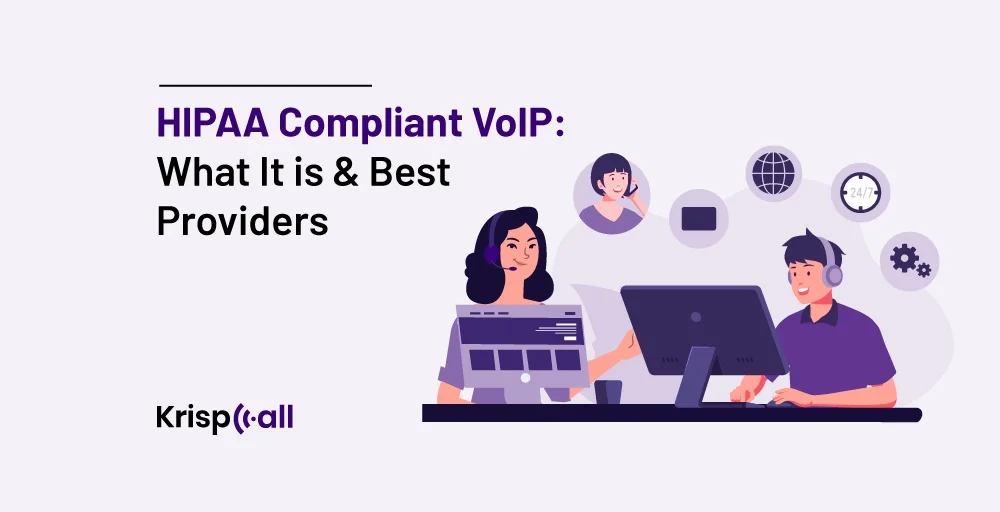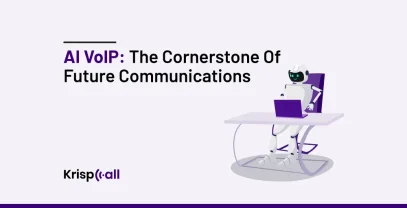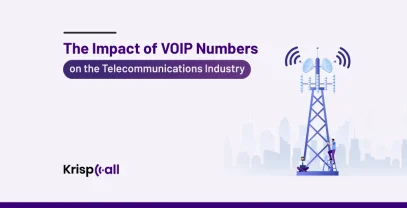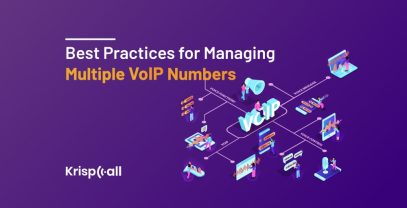VoIP is becoming increasingly popular as an easy and cost-effective way of communicating in the healthcare sector. 🏥
Aside from that, safeguarding patient information is of the utmost importance today, not just because it’s nice, but because it’s necessary! This is where the Health Insurance Portability and Accountability Act (HIPAA) comes into play. HIPAA sets the standard for protecting 🛡️sensitive patient data, including VoIP.
A HIPPA Compliant VoIP is a service where the VoIP providers provide the features within a safe and secure network under the rules of HIPPA.
But what are the HIPAA rules? 😕
In this blog, we are covering every detail about HIPAA-compliant VoIP, including its definition, the main rules, requirements, benefits, consequences, and the top five providers.
Let’s get started▶️
🔑 KEY HIGHLIGHTS
- A VoIP service that has HIPAA compliance ensures the safety of customers’ data, including voice messages, call recordings, files, and SMS records.
- Privacy, security, and breach notification rules are some of the main rules of HIPAA.
- A HIPAA-compliant VoIP system requires user authentication, data encryption, call logging, and BAA (Business Associate Agreement).
- Text messages, voice and video calls, and voicemail are some communication areas of HIPAA-compliant VoIP.
- The top 5 best providers include the names of Vonage, Ooma, Nextiva, 8*8, and TalkRoute.
What is a HIPAA Compliant VoIP Phone Service?
HIPAA compliance in VoIP phone service is a security compliance that ensures that customer data, including voice messages, call recordings, files, and SMS records, is secure according to HIPAA guidelines.
HIPAA rules and regulations affect businesses and organizations dealing with the personal health information of patients or the ePHI (electronically Protected Health Information). Companies handling sensitive healthcare data should use a VoIP provider meeting HIPAA compliance standard.
What are the Main HIPAA Rules?
1. Privacy Rule
The HIPAA has set some federal standard Privacy Rules in order to protect patients’ medical records and other private information.
These standards protect the PHI and medical information about patients and limit the information that won’t be disclosed without the patient’s consent. HIPPA privacy standards include the following:
- A Company must follow HIPPA standards
- Patients have the right to obtain their health information
- Set of rules to follow while sharing and using PHI
- The company has the right to refuse patient PHI
These standard states that the company must follow all the HIPPA standards, especially the Privacy rules that HIPAA has set.
2. The Security Rule
The HIPPA security rule has formed a national standard to protect patients’ ePHI (electronic personal health information). According to the security rules, the Company must ensure the confidentiality, integrity, and security of ePHI by addressing physical, technical, and administrative safeguards.
Under the Security Rule, businesses must also follow these rules:
- Safeguard patients’ ePHI by ensuring the confidentiality, integrity, and availability of the ePHI they receive, maintain, create, or transmit.
- Protect against security threats to the information.
- Only those who meet those standards are capable of accessing the electronic information.
HIPPA security rules protect the integrity and confidentiality of ePHI by maintaining administrative, physical, and technical measures.
3. The Breach Notification Rule
The HIPPA breach notification rules, 45 CFR §§ 164.400-414, require healthcare organizations to notify patients if they access their medical records by mistake or for any reason. If a breach occurs, healthcare organizations must inform the patient individually, as well as the media and the secretary.
While sending a notification, the organization must consist of four things,
- Organizations must define what a breach is and when PHI is compromised.
- Disclose the time frame and notification of breach.
- Org must explain what information must be disclosed to the patients and HHS (Department of Health and Human Services).
- Companies also should define why they fail to comply with the rule.
HIPAA Compliant VoIP Requirements
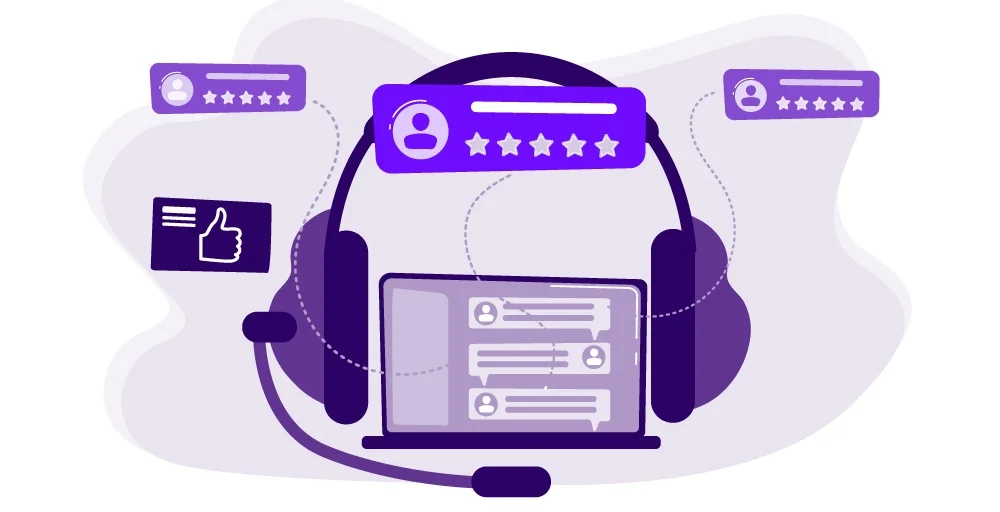
VoIP phone systems need strong security measures to be HIPAA-compliant. These measures include physical and network security. Ensuring that the patient’s information remains private and safe.
VoIP phone systems need the following factors to meet HIPAA compliance:
- PHI and ePHI must be confidential and accessible.
- Protecting patients’ data by identifying possible threats.
- Security must be high to prevent unauthorized use.
- Every worker should follow HIPAA guidelines.
Here are the main requirements for a HIPAA-compliant VoIP system under the HITECH (High Health Information Technology for Economic and Clinical Health) Act:
- User Authentication: Only authorized users should be able to access patient data via unique user IDs.
- Data Encryption: Patient data must be encrypted during transmission by using technologies like VPNs or TLS.
- Call Logging: VoIP systems must record all call data, including metadata and administrative actions.
- Business Associate Agreement (BAA): Those VoIP providers working on health care data must have signed a BAA setting compliance term.
The US Department of Health and Human Services web portal provides more detailed information about HIPAA compliance.
Communications Covered by HIPAA Compliant Phone Service
HIPAA covers a wide range of communications. We have listed some of the communications channels covered by HIPPA Compliant Phone Services:
- SMS text messages: The text messages should be encrypted, contain PHI, and go through a secure network. The sender should ensure that the receiver is authorized to receive such information, and then the receiver should receive the messages.
- Calls: HIPAA requires that all phone calls, especially VoIP calls, be secure and private while discussing PHI and that encryption be used in the VoIP system to prevent unauthorized access.
- Voicemails: HIPAA-compliant phone service should ensure that voicemail messages are secure and protected. Only authorized persons should access the information, and PHI must be encrypted when transmitted via voicemail.
- Video Calls: HIPAA requires video calling tools to use end-to-end encryption while making calls and secure user authentication to ensure that unauthorized parties do not intercept the discussed PHI.
Benefits of HIPAA Compliant VoIP in Healthcare
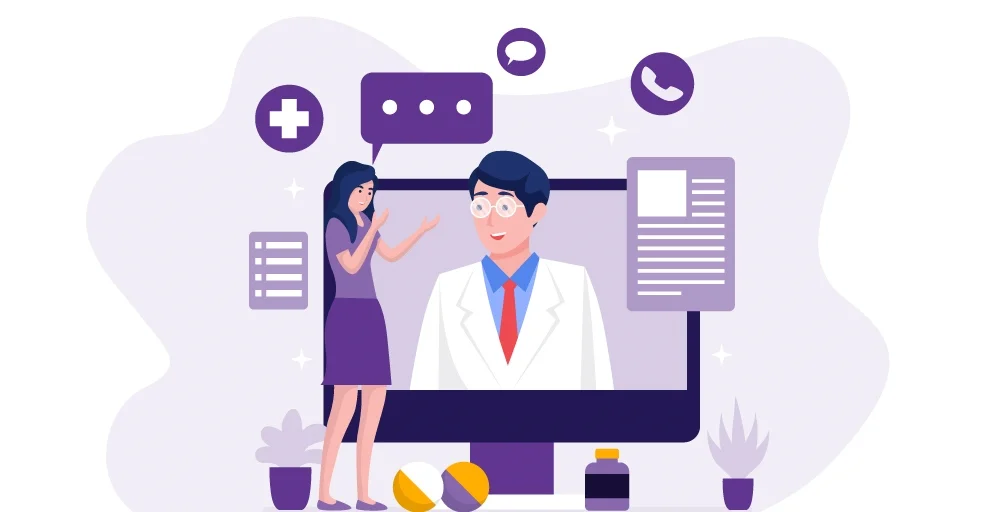
HIPAA is an act that protects patients’ data and information to ensure privacy and prevent unauthorized access.
With HIPAA-compliant VoIP in Healthcare, businesses can benefit in these ways:
- Improved Secure Communication: HIPAA Compliance with VoIP in healthcare enhances the security of communications between professionals and patients through video calls or messaging. It can also be helpful for telemedicine services where face-to-face appointments aren’t feasible.
- Enhances Security Efficiency: VoIP systems enable you to analyze call information quickly by securing storage and providing a record of communications. These records make it easy to identify the ideal time to receive many calls, eventually improving efficiency. Now, HIPAA Compliance allows you to review whether unauthorized persons access the patient’s health information.
- Increases in Customer Satisfaction: After upgrading to HIPAA-compliant VoIP, you can ensure that critical patient information is protected and secure, eventually increasing customer satisfaction. With the addition of HIPAA to VoIP services, features like live chats, voice calls, messaging, and video calls seem more reliable and trustworthy tools in customer perception.
Consequences of Using a Non-HIPAA Compliant Virtual Phone Number
Using a non-HIPAA-compliant VoIP can cause several problems:
- Financial Penalties: Entities using non-HIPAA-compliant virtual phone numbers may be subject to heavy financial penalties and fines for violating HIPAA rules. The fine can be based on the severity of the violation.
- Reputational Damages: Using a non-HIPAA-compliant virtual phone number may expose a patient’s confidential data, which damages the patient’s trust in the entity’s ability to protect their PHI, which leads to a decrease in the number of patients.
- Technical Difficulties: Non-HIPAA-compliant virtual phone numbers may be at risk of hacking and cyberattacks. Data loss and disturbance in operational activities may also occur.
- Legal Risk: Non-complaint VoIP may expose patients’ private data. Affected patients can sue the entity for compromising their PHI.
5 Best HIPAA Compliant VoIP Providers
HIPAA-compliant VoIP providers secure patients’ confidential information, so it is essential to choose the best HIPAA-compliant VoIP providers.
We have listed the top 5 best HIPAA-compliant VoIP Providers below:
1. KrispCall
KrispCall is a HIPAA-compliant VoIP service that offers secure telephony solutions for modern call centers and businesses of different types. KrispCall’s VoIP solution is also ideal for use in the healthcare industry. It ensures privacy and protects client data through secure data storage procedures and end-to-end encryption and follows all the guidelines set by HIPAA.
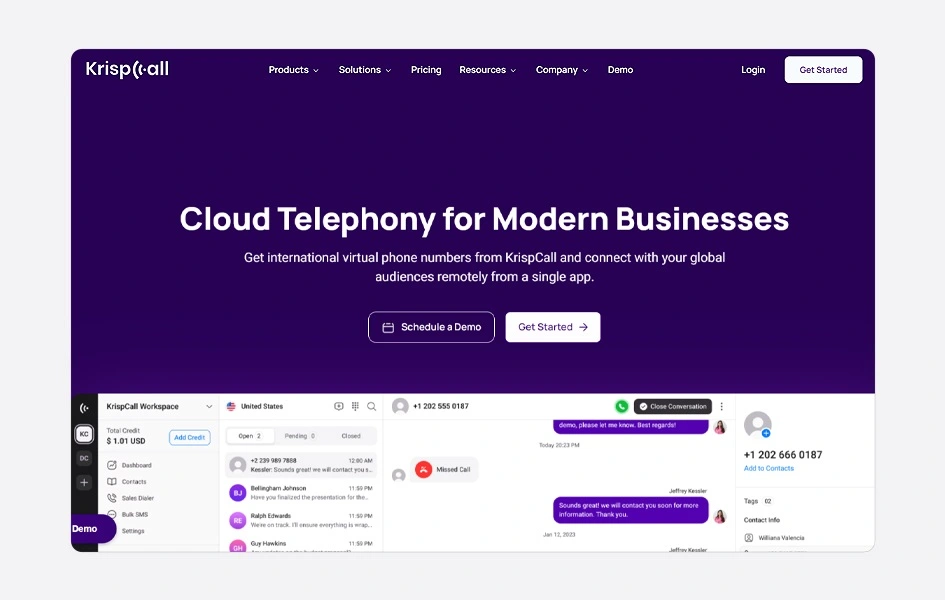
KrispCall’s commitment to compliance and security makes it a reliable choice for organizations, especially those handling sensitive data like healthcare information under HIPAA regulations. Additionally, KrispCall’s scalability allows businesses to adjust to new laws without disruptions, ensuring ongoing compliance with changing regulations.
Key Features
- Voicemail transcription
- Virtual numbers from 100+ countries
- SMS
- Virtual Receptionist
Pros
- Calling and texts are unlimited
- User-friendly interface
- High-quality voice
Cons
- Internet dependency
- No Linux App (Coming Soon)
2. Ooma
Ooma is a HIPAA-compliant VoIP provider that offers advanced VoIP solutions to improve business communications. Its comprehensive features include virtual receptionist, call forwarding, conference calling, and voicemail transcription.
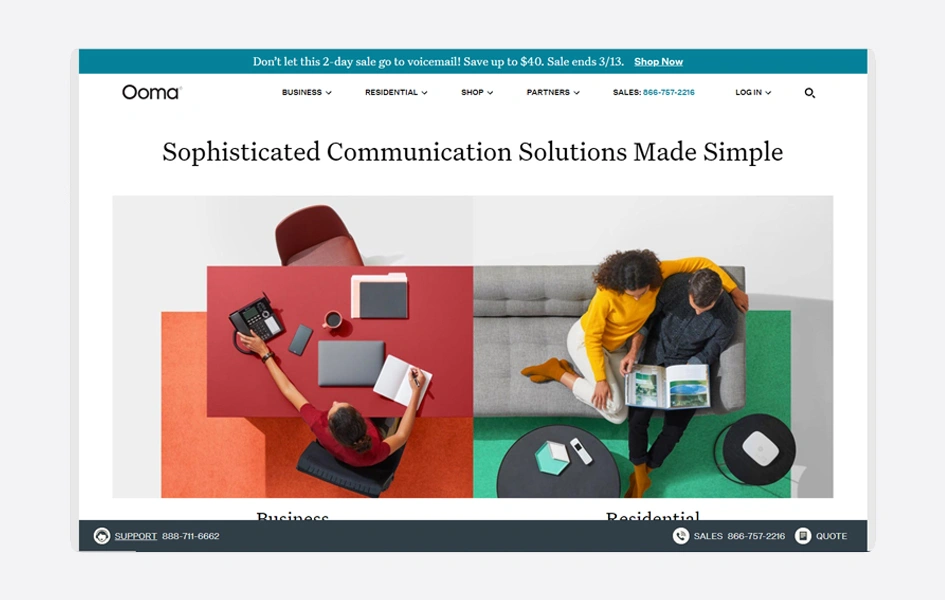
Ooma is ideal for businesses seeking to improve communications, provide exceptional customer experiences, and ensure HIPAA compliance. Its pricing ranges from $19.95 to $29.95 per user per month. The user-friendly interface and strong analytics allow businesses to improve performance and decision-making.
Key Features
- HD voice quality
- Conference calling
- Virtual receptionist
- Voicemail transcription
Pros
- Affordable
- Strong reliability
- Easy setup
Cons
- Connection issues might occur occasionally
- Customization options are limited
- Customer support can be improved
3. Nextiva
Nextiva is a VoIP provider that is especially recognized for its innovative features. It offers smooth communication tools to enhance businesses, and its VoIP solution is good enough to be used by businesses of all types and sizes.
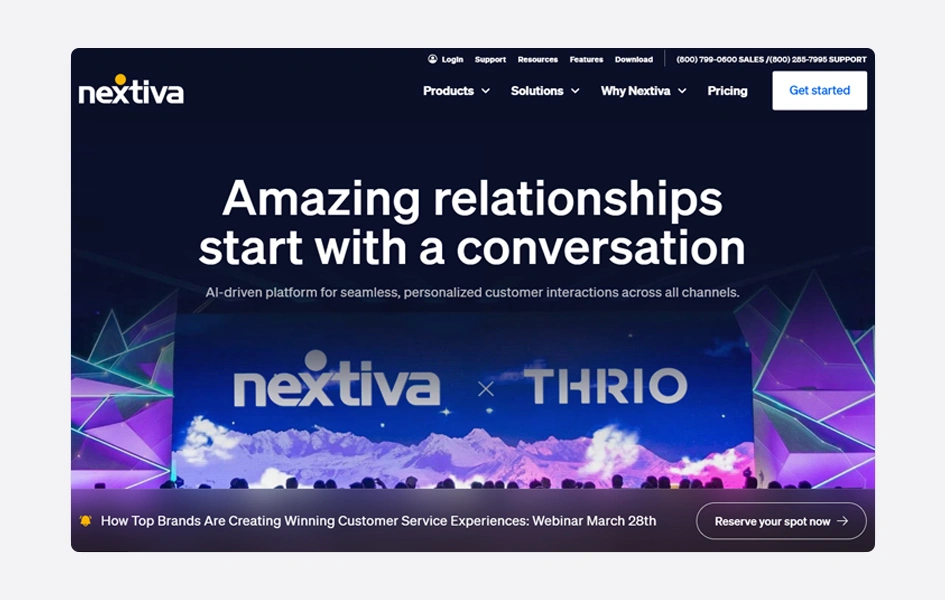
Nextiva ensures HIPAA compliance by providing Transport Layer Security (TLS) and Secure Real-time Transport Protocol (SRTP) encryption protocols for securing data transmission in healthcare centers. It also assists organizations in complying with HIPAA standards.
Key Features
- Automated attendants
- Call routing
- Instant messaging
- Software pairing
Pros
- Ease of use
- Helpful customer support
- Ability to record calls
Cons
- Limited Features
- Call issues
- Difficulty with some features
4. 8×8
8×8 is also one of the best HIPAA-compliant VoIP providers that offers businesses a wide range of chat, phone calls, and video solutions. 8X8 provides unlimited international and domestic calling to their users and can add as many users to the plan as you want.
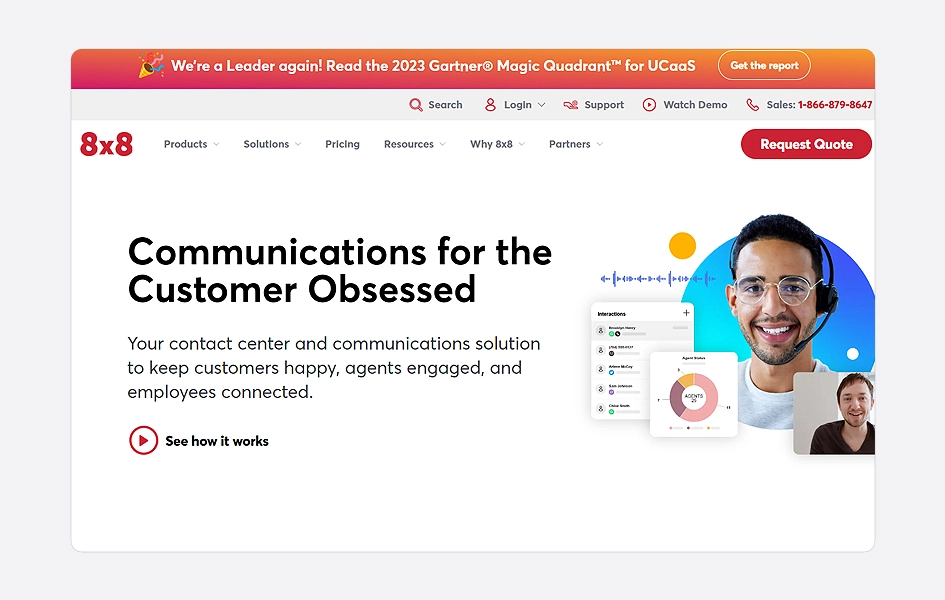
Compliance with HIPAA makes it the go-to provider for secure features. It is ideal for large and small businesses, and its monthly subscription cost ranges from around $24 to $44 per user.
Key Features
- Reporting and dashboards
- IVR
- Auto Dialer
- Session recording
Pros
- Unlimited calling to at least 14 countries
- Shortcut while initiating calls
- Integration with popular tools
Cons
- Excessive prices for small businesses
- Sometimes, it creates difficulty while switching headsets and managing settings.
- Support has been less helpful
5. TalkRoute
TalkRoute is a VoIP service provider that helps manage incoming business calls. It can forward calls to cellular phones or create menu prompts. It presents itself as a company that can give you a virtual phone system that you can use anywhere: at home, at work, or on the road.
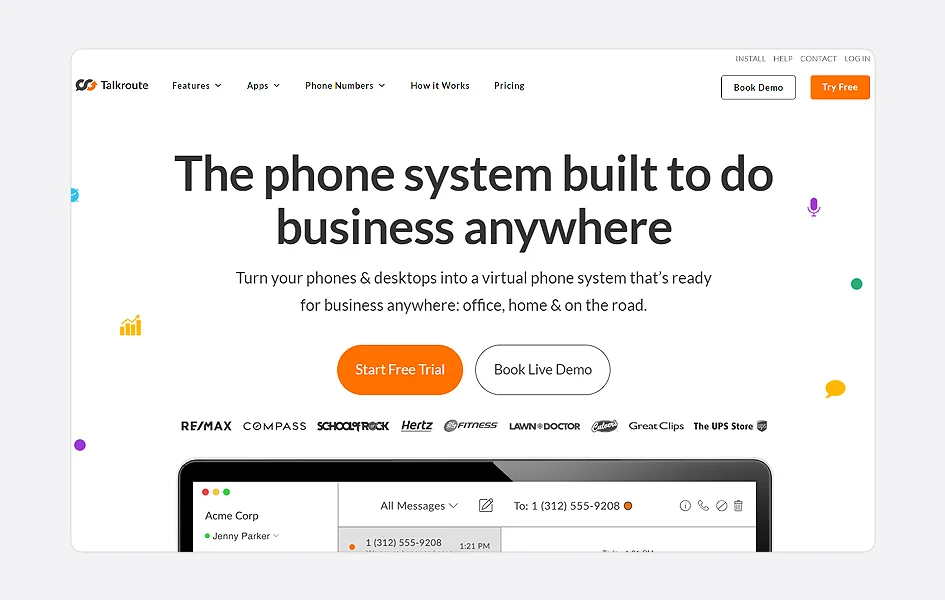
Talkroute can be HIPAA compliant but with some exceptions. This provider’s text messaging service can only send SMS messages that do not contain PHI ( Protected Health Information). It is specially designed for small and growing businesses and starts at $19 per month.
Key Features
- IVR
- Customizable caller ID
- Reporting and analytics
- Voicemail transcription
Pros
- Easy implementation
- Unique features
- User-friendly interface
Cons
- Low storage of voicemail box
- Customer supports lack
- Technical issues might occur
HIPAA Compliant Phone System: Best Practices
A HIPAA-compliant phone system can provide strong encryption, prevent unauthorized access, and protect patient information.
With a HIPAA-compliant phone system, these can be the best practices:
1. Pick a Good VoIP HIPAA-Compliant Provider: Choosing a good and reliable provider is crucial for better compliance. Before choosing, make sure that the provider is reliable and that you can get encryption and secure data transfer by meeting HIPAA security standards.
2. Use Strong Encryption: A HIPAA-compliant phone system should encrypt all calls and messages to maintain safety. It should contain security measures like TLS or SRTP to encrypt both while transferring or storing data.
3. Prevent unauthorized access: Limiting access and monitoring the information of patients in the VoIP system are needed to prevent unauthorized access. Strong passwords, other authentication, and access only with the verification of the authorized person should be in place.
4. Monitoring the security: Checking the VoIP system regularly is essential to address security issues. By monitoring the security and overall VoIP system, you can update software when required, apply new versions, and add new security features to enhance the security.
5. Protect Call Recordings: Encrypt and securely store calls while recording. VoIP systems can set rules for accessing and storing recorded data, including call logs, voicemails, or any other data containing patient information. This secures the Patient’s health information.
How Much Does a HIPAA Compliant Solutions Cost?
According to the U.S. Department of Health and Human Services (HHS) final HIPAA rule 2013, HIPAA compliance costs around $1,210. They estimated the cost per organization based on some rules that HIPAA has set. For example:
- Notice of Privacy Practices: $80
- Breach Notification requirements: $763
- Business Associate Agreements: $84
- Security Rule Compliance by Business Associates: $283
Even though the government has set a fixed price for HIPAA-compliant solutions, it can vary depending on your organization’s types, needs, and employee numbers. For example:
If you have a small healthcare organization with a few numbers of employees, HIPAA should cost:
- Training and policy- $1,000-2,000
- Risk Analysis and Management Plan – $2,000
- Gap analysis and Remediation -$1,000 – $8,000
Which means a total of around $4,000 to $12,000.
If you have a large/medium business with a larger number of employees, HIPAA should cost:
- Risk Analysis and Management Plan ~ $20,000+
- Vulnerability scans ~ $800
- Gap analysis and remediation ~ Varies based on where the entity stands in compliance and security, $10+
- Onsite HIPAA compliance audit ~ $40,000+
- Penetration testing ~ $5,000+
- Training and policy development ~ $5,000
In total, that’s $80,000+
Conclusion
A HIPAA-compliant VoIP system secures data under the HIPAA rules using the three primary rules: Privacy, security, and breach notification. It is a popular security act for businesses associated with patients’ information. HIPAA benefits healthcare by improving secure information, improving security efficiency, and increasing customer satisfaction.
These benefits make HIPAA compliant a must-needed compliance for VoIP services. Using non-HIPAA compliance can create consequences like legal penalties, reputational damage, and technical difficulties. If you are looking for a HIPAA compliant service provider that is reliable, you can choose KrispCall.
KrispCall is a VoIP provider that is HIPAA compliant, follows all the practices to meet HIPAA criteria, and prioritizes providing the best services to its users while protecting their privacy.
FAQs
Are VoIP phones HIPAA compliant?
VoIP phones are HIPAA-compliant because VoIP communications are directly governed by HIPAA, which allows them to protect sensitive call data.
Are cell phones HIPAA compliant?
Yes, Cell phones are HIPAA regulations as long as they maintain and ensure the security of patient data.
What makes a phone number HIPAA compliant?
Phone numbers can be HIPPA compliant if they follow certain requirements such as a business associate agreement, have a unique ID, and follow Encryption.
What information is covered under HIPAA?
HIPPA covers all patient information, such as their overall information, such as name, address, birth date, and social security number, their physical or mental health condition, the service the patient received from the company, and lastly, all the billing information.

